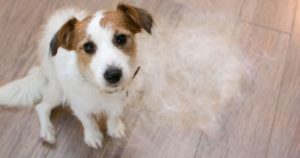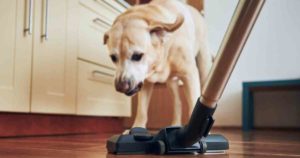Quick!
You have guests visiting any minute now, so you pull out your vacuum to make your carpet spotless and your house in tip-top shape.
But then disaster strikes.
Your dog starts losing their mind, barking like it is in agony, and having a very aggressive response whenever the cleaning appliance enters its personal space.
Unfortunately, this is a very common behavior for dogs, with a lot of them deeming traditional vacuums as mechanical monsters on wheels.
You can’t carry on torturing your pet, so you have to stop, leaving your house a mess as your guest enters the home.
Why does this happen to so many canines?
Why do dogs hate vacuums?
In this article, we are going to be discussing exactly why your dog has an unexplained fear of a cleaning tool, and we’ll give you 4 techniques you can utilize to prevent a negative experience every time you clean.
Let’s get into it.
Why Do Dogs Hate Vacuums?
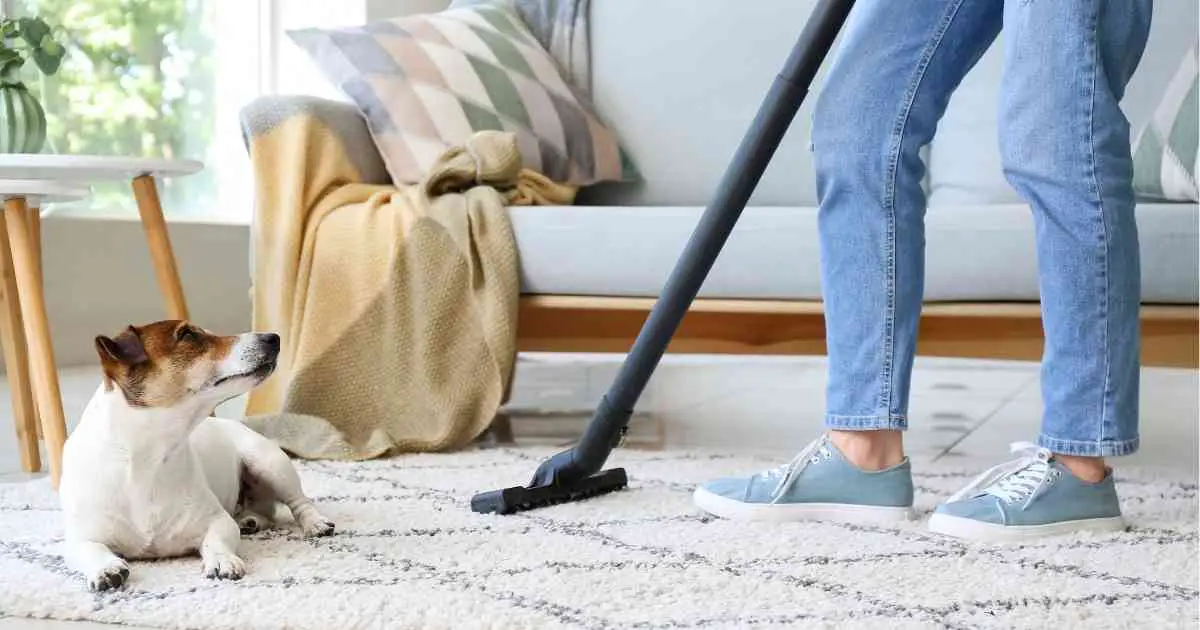
If you were an alien, what would upright vacuums look like to you?
The first thing that springs to mind would be loud, scary robots that move and suck up objects making them disappear forever.
With this description in mind, we can understand the fear of vacuums a dog has.
To them, it is rational.
The vacuum sound is loud, and the smell is just overbearing to dogs, meaning their sense of smell as well as their sense of hearing is overloaded all at once.
This will ultimately create an environment that triggers their fight or flight reaction and kicks in their adrenaline. Dogs will either try to escape from the vacuum or even sometimes attack it.
Animal experts have completed a variety of studies on dogs’ noise sensitivity and have found sudden, high-frequency sounds to be the main cause of fear and anxiety.
What Has Caused This Behavior
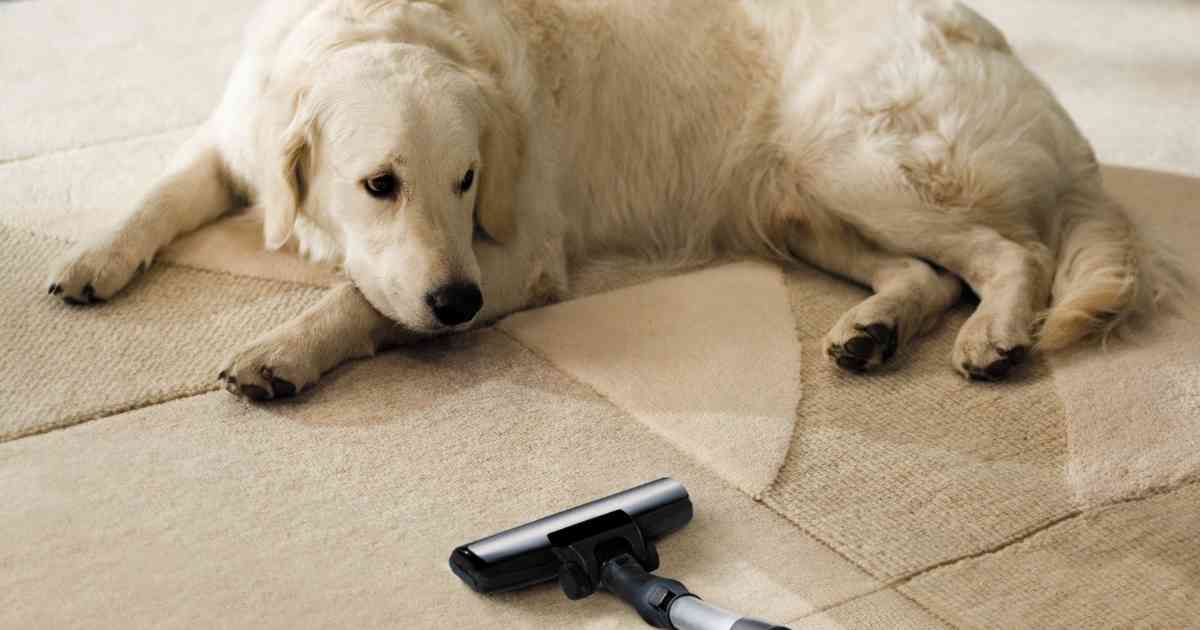
Typically, this abnormal behavior stems from a bad experience as a young pup.
This doesn’t mean you have caused them to be afraid of a vacuum cleaner on purpose, but if a sudden onset of loud noise one day woke them from a deep sleep, they would be startled.
This will then cause a fear of the vacuum device, as every time they hear the noise that startled them in the first place, they will feel fear and anxiety.
Even if they have not had this initial bad experience, most dogs will view a typical cleaning device as a scary monster, so you’ll have to have training sessions so they feel more comfortable around them.
4 Methods to Stop Your Dog From Barking at the Vacuum Cleaner
Remove Them From the Area You Want to Clean
First up, we have a quick and easy method that will allow you to clean your house without the worry of your pet being scared and aggressive.
The root cause of the fear is the noise levels, so we can reduce that by placing them in another room, preferably with a white noise machine to help distract the dog and reduce their noise sensitivity.
However, this doesn’t solve everything.
As owners, we do not want our animals to be afraid of our cleaning equipment, so by just hiding them outside or in another room, we are not creating a positive response and are instead teaching them to hide whenever we need to clean up pet hair.
Pavlov Conditioning Method
The best method we can use to create positive experiences between our dog and the vacuum is by taking advantage of the Pavlov Conditioning studies.
In the original study, Pavlov conditioned his dogs to salivate at the ringing of a bell by feeding them every time they heard the noise.
We can create a similar experience with the vacuum and some of their favorite treats.
First, place the vacuum cleaner in their vicinity. If they do not react, treat them with peanut butter. If they begin to bark, move it away. You don’t want to rush your dog into it and force them to stop reacting to the vacuum by scolding them. This could result in the problem worsening.
As your dog begins to pair the idea of the vacuum with a tasty treat, they will start to shift in how they feel about the device. Rather than becoming aggressive around the monsters on wheels, they will display positive alternative behavior.
We can then advance the conditioning training techniques to the sound of the hoover.
Do Not Encourage the Behavior
It’s easy to allow the behavior to carry on.
Maybe it was funny at first that your pet was attacking the vacuum because to you it’s just a simple cleaning tool.
However, just ignoring this behavior and continuing to clean around them can make it worse.
Your canine will believe that you are encouraging them and that they are doing the right thing by being aggressive towards it.
As soon as you notice behavioral changes towards loud noises, you should begin methods in order to change it.
Use a Robot Vacuum Cleaner
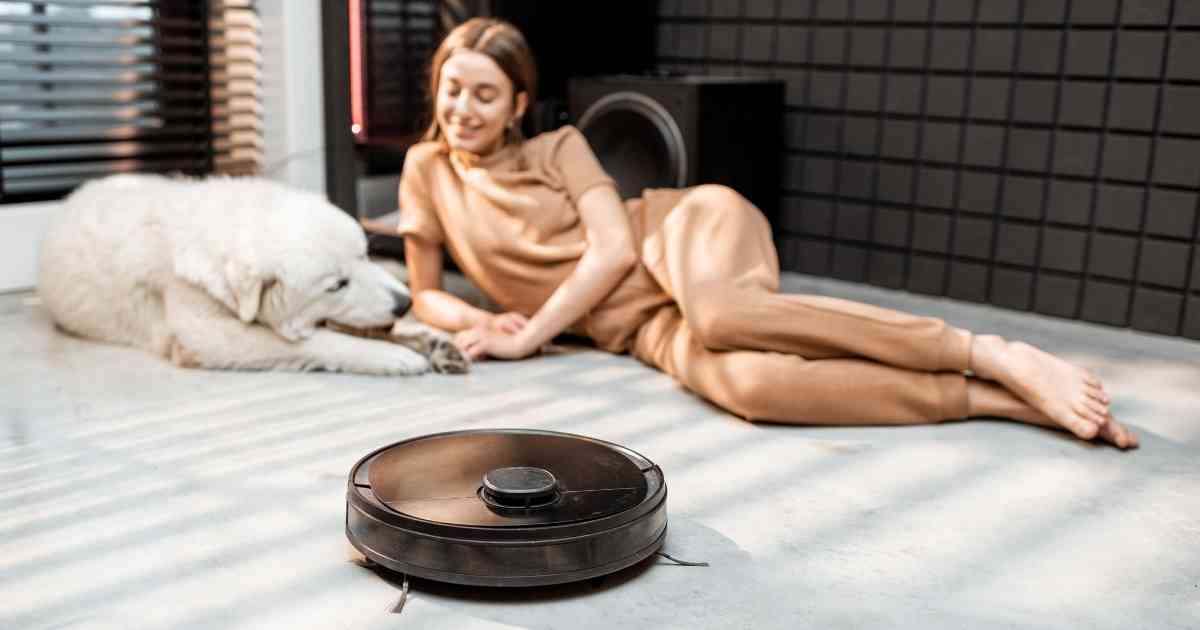
Have you ever seen those little robotic vacuums, like a Roomba?
These small cleaners are becoming a hit with pet owners across the world as they can not only be programmed to clean their house automatically, such as when they have taken their dog for a walk, but are also a lot smaller and quieter.
A lot of dog breeds have found these less intimidating and have been less aggressive when these devices are roaming around the house.
Why Do Dogs Hate Vacuums: Conclusion
So, why do dogs hate vacuums? Many pups react poorly to vacuums, so if yours goes into hysteria every time it encounters one, you’re not alone.
The loud noise combined with unfamiliar smells can trigger their fight or flight response, and you probably want to nip it in the bud.
In our opinion, the best method would be to take time to desensitize them to your vacuum by using conditioning techniques. If this is not possible, then our next recommendation would be to invest in an automatic robotic cleaner.
So, how did you prevent your dog from barking at a simple vacuum device?
Let us know in the comments below.


